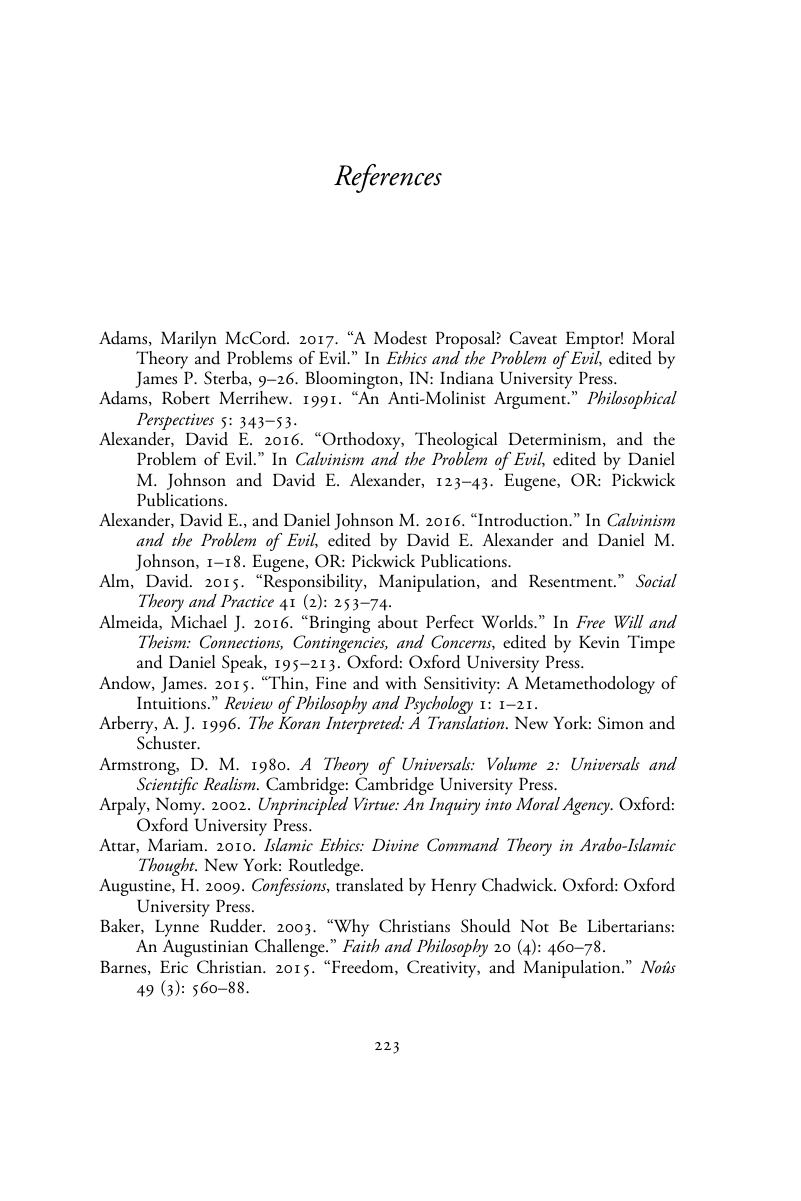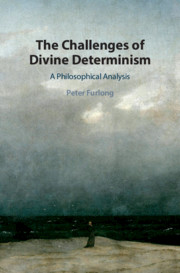Book contents
- The Challenges of Divine Determinism
- The Challenges of Divine Determinism
- Copyright page
- Dedication
- Contents
- Acknowledgments
- Introduction
- Chapter 1 A Primer on Divine Determinism
- Chapter 2 Divine Determinism and Free Will
- Chapter 3 Divine Determinism and Free Will
- Chapter 4 Divine Determinism and the Author of Sin Objection
- Chapter 5 Divine Determinism and the Blameworthiness Objection
- Chapter 6 Divine Determinism and the Free Will Defense
- Chapter 7 God, Determined Agents, and Love
- Chapter 8 Divine Commands, the Divine Will, and Divine Blame
- Conclusion
- References
- Index
- References
References
Published online by Cambridge University Press: 07 June 2019
- The Challenges of Divine Determinism
- The Challenges of Divine Determinism
- Copyright page
- Dedication
- Contents
- Acknowledgments
- Introduction
- Chapter 1 A Primer on Divine Determinism
- Chapter 2 Divine Determinism and Free Will
- Chapter 3 Divine Determinism and Free Will
- Chapter 4 Divine Determinism and the Author of Sin Objection
- Chapter 5 Divine Determinism and the Blameworthiness Objection
- Chapter 6 Divine Determinism and the Free Will Defense
- Chapter 7 God, Determined Agents, and Love
- Chapter 8 Divine Commands, the Divine Will, and Divine Blame
- Conclusion
- References
- Index
- References
Summary

Information
- Type
- Chapter
- Information
- The Challenges of Divine DeterminismA Philosophical Analysis, pp. 223 - 234Publisher: Cambridge University PressPrint publication year: 2019
